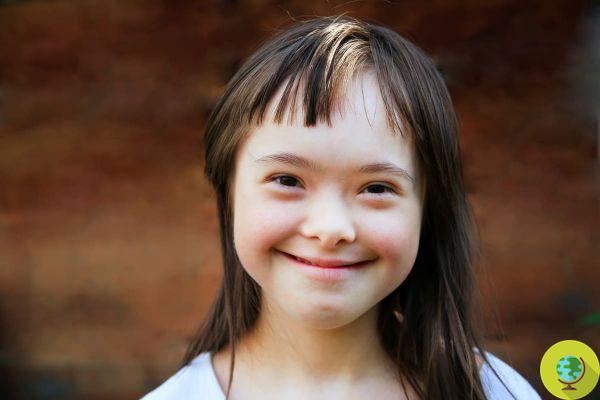
10 things to know about Down syndrome that you probably don't know, useful for overcoming stereotypes, prejudices and inequalities.
Don't store avocado like this: it's dangerousLa down syndrome, as is well known, it is caused by a genetic alteration due to the presence of a third copy of chromosome 21. Although it is a known syndrome, there are many things we ignore about it and for this reason, the "Down Movement" of Brazil he wanted to clarify by drafting a brochure that clarifies 10 fundamental points. Let's find out one by one.
Index
Down syndrome is not a disease
The brochure of the “Down Movement” specifies that it is a genetic condition but not a disease and that it is important to make this distinction since people with Down syndrome are often mistakenly considered ill.
Not all Down people are the same
At first glance people with Down syndrome may all look the same due to their similar physical conformation but the brochure specifies that each individual is different and has unique characteristics, both from a genetic and family, cultural, social, educational point of view and so on. saying.
Mental and intellectual disabilities are different
Mental and intellectual disabilities are often considered the same thing but according to the Down Movement we must differentiate them because the mental one refers to a psychological impairment, which does not concern Down people.
Down people are not carriers of the syndrome
It is incorrect to say that people with Down syndrome are carriers of the syndrome because it is an intrinsic characteristic of the person.
The person is an individual, it is not the disability
The brochure specifies that people come first and that, therefore, it is right to mention disability only later, if necessary.
People with Down syndrome have an opinion
We must not think that people with Down Syndrome do not have their own thoughts and opinions on the world and their surroundings. They are perfectly capable of speaking out on any issue and there is no reason to rule them out.
People with Down syndrome must be treated as equals
While having a disability comes with limitations, this doesn't mean that people with disabilities don't have fun, can't study, go out and lead a life like everyone else. They should therefore be treated as equals, and not as unfortunate beings.
Up close, no one is normal
In the world there is no normality, if anything there are majorities and minorities, but who says that the former are more normal than the latter? And what does normality mean? We are all human beings of equal value, with different characteristics.
Everyone has a constitutional right to inclusion and citizenship
The Down Movement was born in Brazil and emphasizes that in the country, in 2008, the Convention on the Rights of Persons with Disabilities was approved as a constitutional norm, and that "it is up to the state and society to seek ways to guarantee the rights of all persons with disability on equal terms with others ". It just needs to be more widespread.
Using the correct terminology is important
Finally, the brochure emphasizes that words are important. Using them correctly is essential to overcome and contrast prejudices, stereotypes, inequalities. Let's use them well!
SOURCES: Down Movement
You might also like:
- Down syndrome: 5 stories to show that there is beauty and strength in diversity
- Down syndrome: everyone has the right to be happy. The video that moves the network


























